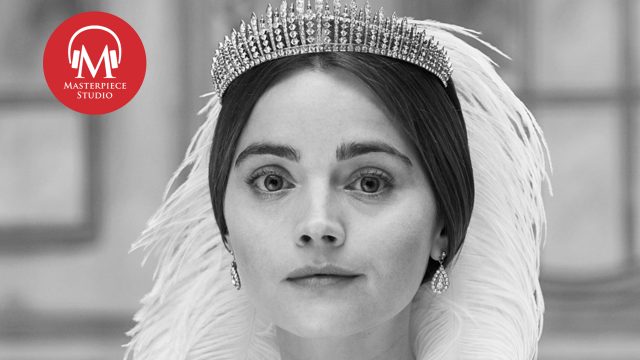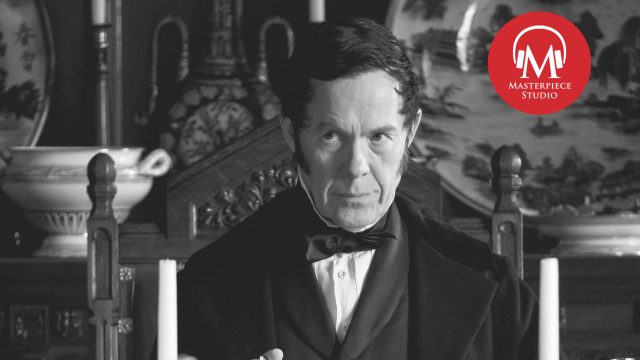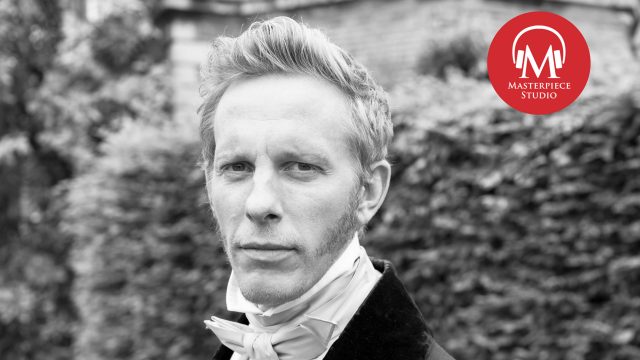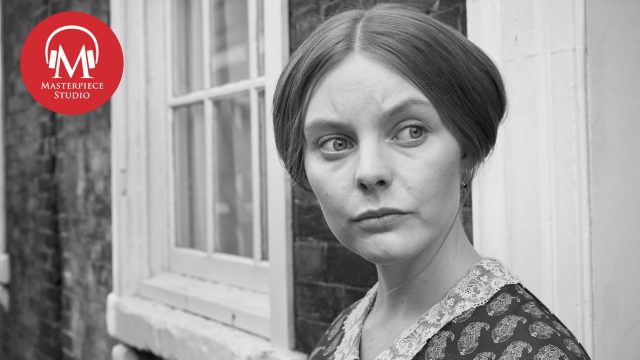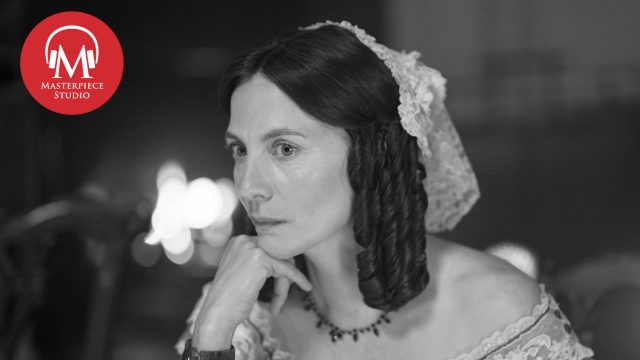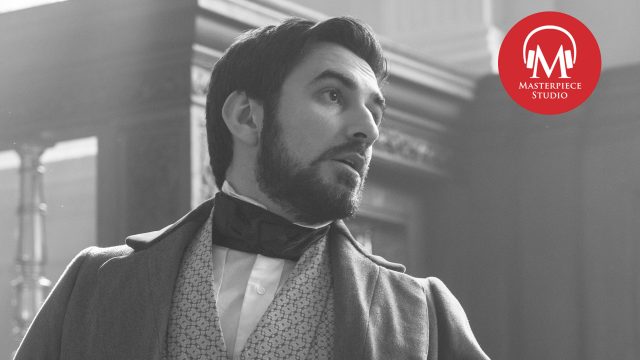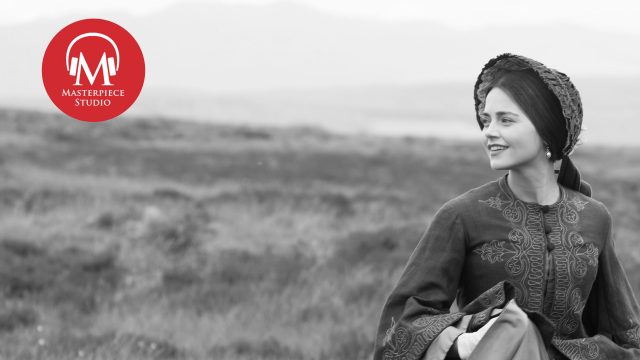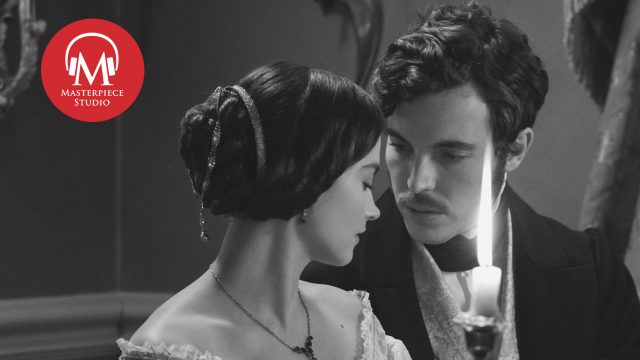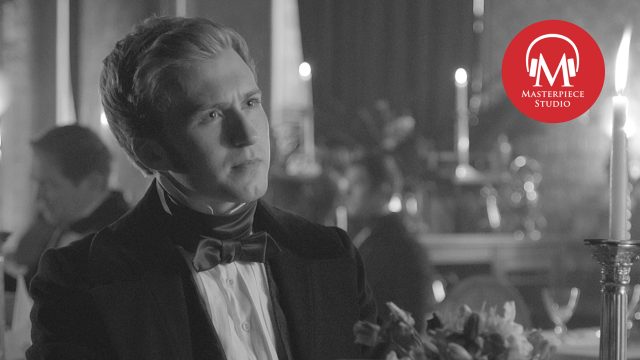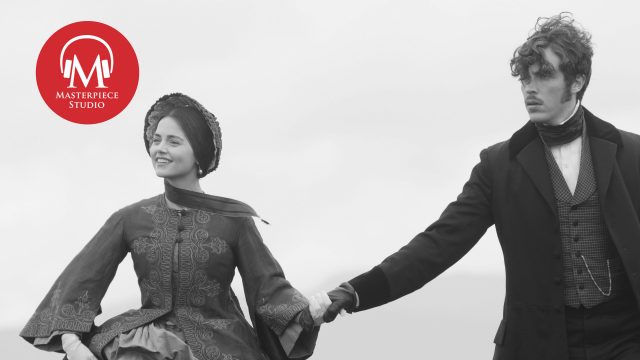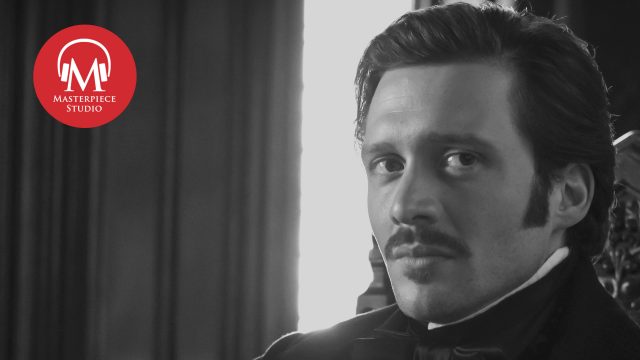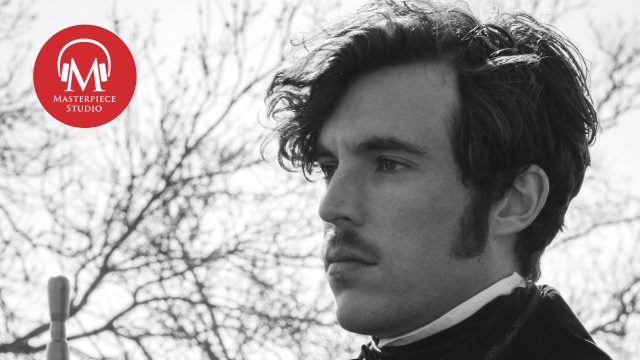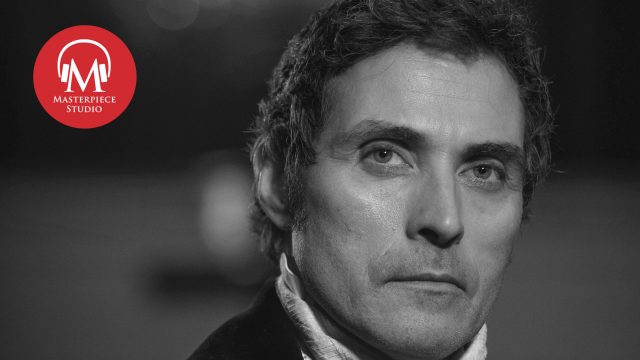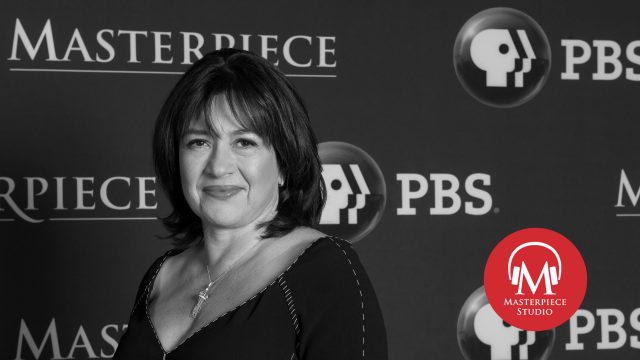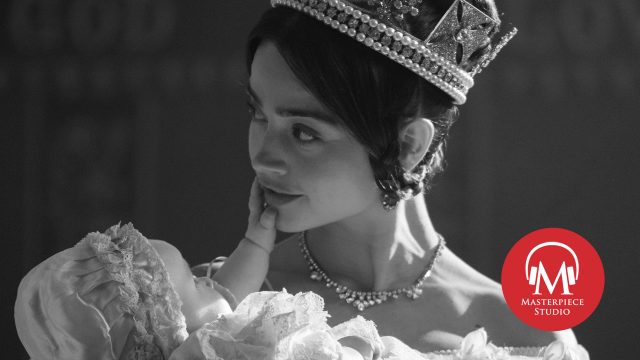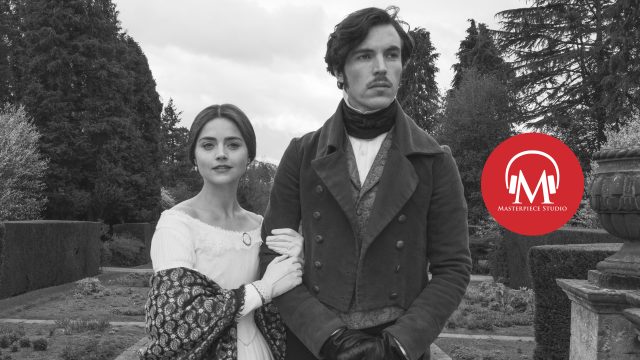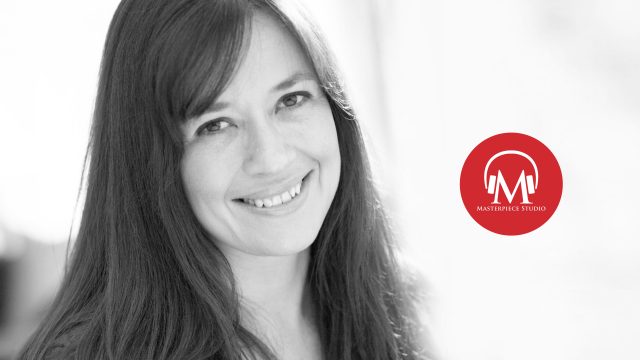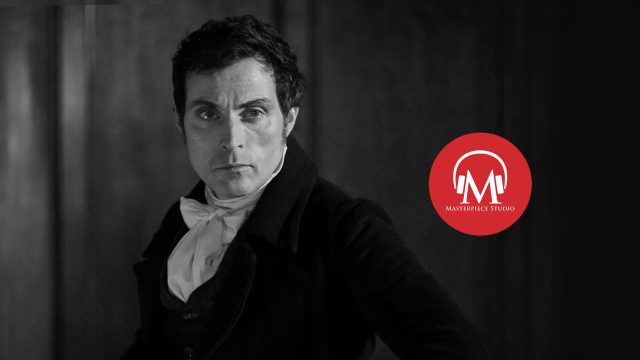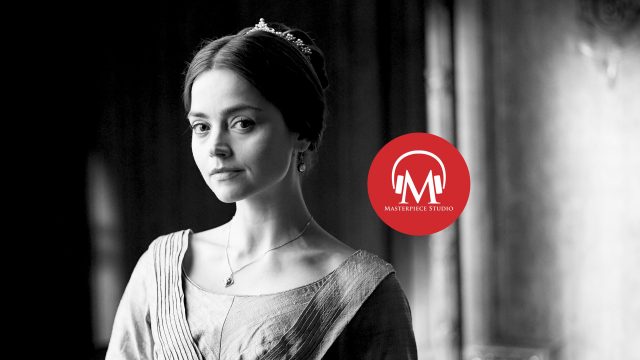The scheming Princess Feodora snuck into Buckingham Palace early in the third season of Victoria, surprising her half-sister, the Queen, and continuing to lurk in the background of the main royal drama. Actor Kate Fleetwood credits her just-so German accent for helping her sink into the role, but she also acknowledges she feels a certain kind of sympathy for the dastardly half-sister with few real friends. She talks Feo, Lady Macbeth and birthday cake in a new podcast episode.
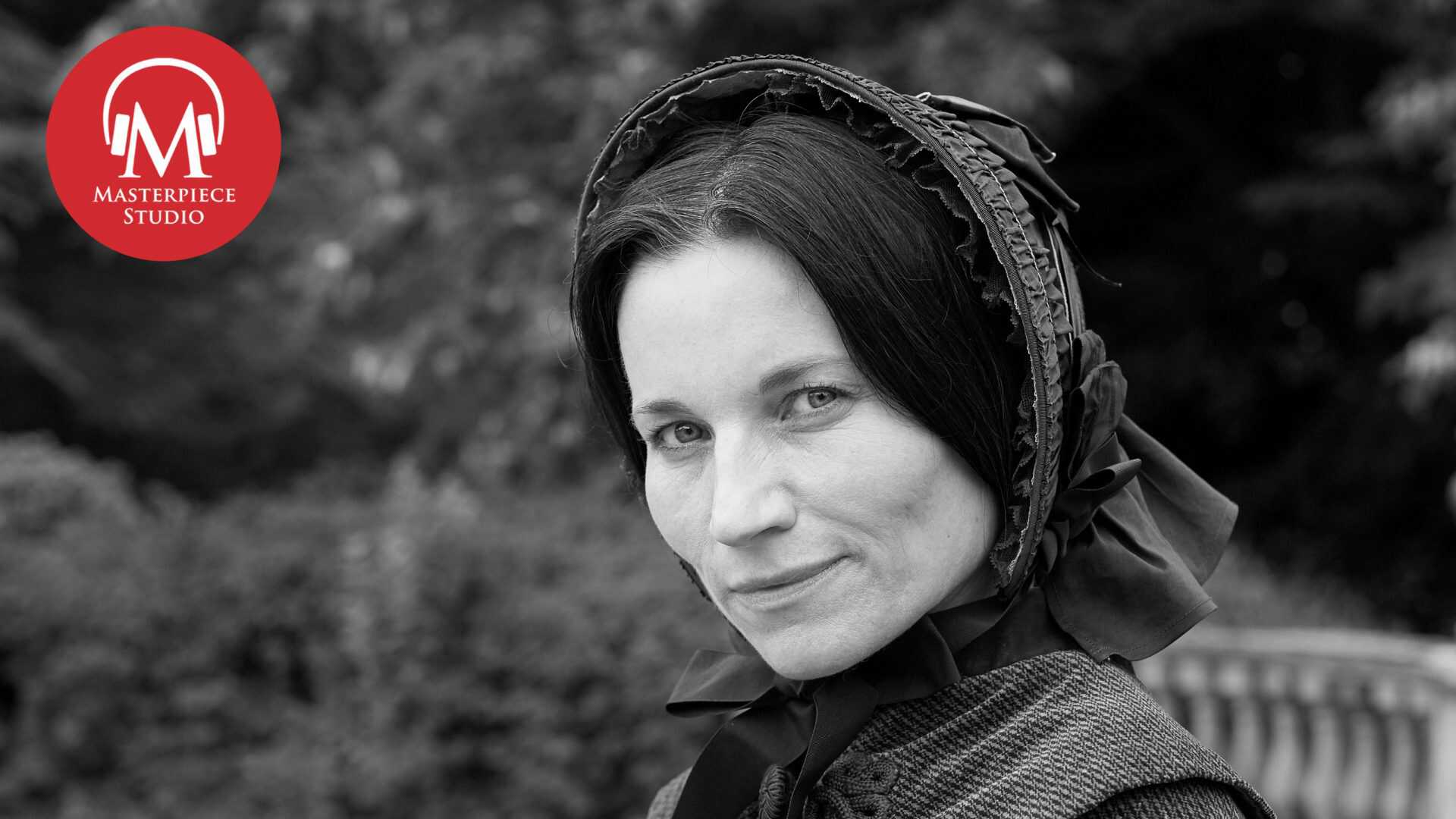

Princess Feodora Could Have Been Queen, But Kate Fleetwood Already Reigns
Released 41:40
Related to: Victoria, Season 3
Download and subscribe on: iTunes | Spotify| RadioPublic
Transcript
Jace Lacob: I’m Jace Lacob, and you’re listening to MASTERPIECE Studio.
A black clad refugee, arriving silently on the shores of England, is revealed to be the long-lost half-sister of the Queen. But is she a loving companion, or a menacing schemer? Queen Victoria’s relationship with her mother, the Duchess of Kent, is icy, to say the least. So it came as no surprise to MASTERPIECE viewers this season that the Queen’s relationship with her estranged half-sister, the Princess Feodora of Langenburg, is just as fraught.
CLIP
Victoria: I think it’s time you went home.
Feodora: I think your husband would be very sorry to see me go. He so enjoys having someone rational to talk to.
Jace: Feo arrives unannounced at Buckingham Palace, and overstays her welcome by inserting herself into the Royal Couple’s simmering feud. She’s Team Albert, then she’s Team Victoria, but ultimately, it seems, Feo is on Team Feodora above all else.
CLIP
Victoria: What is she like, Feodora?
Feodora: She’s hopeful. Carefree. Spirited. Just like I was at that age, before Mama banished me to Langenburg.
Jace: Much of the sibling drama between Victoria and Feo is invented for the screen, but actor Kate Fleetwood injects a layered sense of malice, resentment, and jealousy into the imagined relationship between Feo and her Drina.
Kate Fleetwood: I think she probably doesn’t know her own power, and she’s a tactless, manipulative person who’s trying to be heard and be loved. I think she’s very genuine when she talks about those things, about the darkness.
Jace: We talked with Fleetwood about archery, sibling rivalries, and the cataclysmic power of Lady Macbeth.
Afterwards, Victoria creator, head writer, and executive producer Daisy Goodwin joins us for another round of fact or fiction.
And this week we are joined by Victoria star Kate Fleetwood. Welcome.
Kate: Hello there! Thanks for having me.
Jace: We first meet her Serene Highness Princess Feodora in the first episode of the season, when she’s rowed ashore clad in black to her new home in England. But what was your initial impression of the character when you read the scripts for season three?
Kate: When I first read the scripts, I found her really interesting. She’s been a really, really fun character to play. She’s the older sister, the half-sister of Victoria, and she’s a very complex mixture of being manipulative, emotional, honest, truthful, tactless, passionate and scheming. And she has a lot at stake, so she arrives on shore hoping to get her feet firmly back under the table at the palace where she grew up. And I just found her really fascinating, and real, actually. And quite complicated. And so that’s a lot of grit and friction to play — as an actor, you’re always looking for the friction and the scratch in a character, and so there’s lots of contradictions, lots of darkness, notes of light. And also she’s quite playful, almost tactlessly so, and she plays Albert and Victoria off one another. And she’s quite free. So when she first enters the palace, she does so quite dramatically, falls on her knees and cries out, and there’s no sense of protocol or etiquette with her. She doesn’t sort of live by those rules. I think because she thinks herself as an equal, both to Albert and Victoria, because I think she feels that she should have been Queen.
Jace: I loved that scene that you mention. She does throw herself almost hysterically at Victoria’s feet as though she’s a supplicant.
Kate: Yes.
CLIP
Penge: Your Majesty, your…sister is here.
Victoria: Feodora? Oh Feo. Oh it is you! But how…why…
Feodora: Oh Drina, look at you.
Victoria: Feo…
Feodora: I have not stopped for three days…And this is cousin Albert. Oh, I am so happy to meet you, at last.
Jace: How does that moment inform your approach of the character, as sort of the the prodigal half-sister or as a down on her luck grifter — or both?
Kate: I think it’s both, and I think she does it for effect. It’s quite interesting to play that, because she genuinely feels that. But she also knows the effect of it upon her audience, whenever she’s sort of play acting up, or acting out those ways of sort of communicating. So it’s quite interesting as an actor, because you’re thinking, ‘Well, is this for real? Are these crocodile tears?’ But they’re also laced in a huge legacy for her of things she’s lost. And so it’s very fascinating to play, because sometimes you think, ‘Ooh she’s not quite genuine here,’ or actually, ‘This is years and years of grief and pain and loss and sadness and resentment building up to this moment, and she’s sort of prepared it and she’s not going to let them get away with not witnessing her pain and grief.’ She’s quite like Hedda Gabler that way I guess, in the sense that she’s not going to do anything quietly.
Jace: She says to Victoria at one point, ‘My life had become so dark, and yours was so light.’ She says she quote, ‘Understands the ache of the lonely marriage.’ Why do you think Feo is so hellbent then on inserting herself into life at the palace and driving a wedge between Victoria and Albert, specifically?
Kate: I think it’s sort of schadenfreude perhaps, she wants Victoria to feel that same ache and that same pain. It’s like she’s the little sister actually — I’m the little sister in my family so I’m allowed to say that — you know, she feels that no one ever listens to her, no one ever has heard her real story, her real truth and I think I think when she realizes that the wedge has grown between them, possibly because of her doing, I think she does feel guilty about that. I think she probably doesn’t know her own power, and she’s a tactless, manipulative person who’s trying to be heard and be loved and so when she, I think she’s very genuine when she talks about those things, about the darkness. But she’s blaming —it’s sort of passive aggressive action, isn’t it? She’s saying, ‘You don’t understand the way my life is, because your life is full of light, as mine should have been, had you not usurped me.’ So I think it’s sort of a passive aggression.
Jace: As the actor who plays her, do you have sympathy for her character?
Kate: Oh yes.
Jace: Do you find her sympathetic?
Kate: Yeah I think most actors would say that they try and at least understand the character, and find the truth in that. You have to have to believe that the character you’re playing is is motivated through their own truth, and if, you know, from the outside that looks like manipulative and overbearing, then so be it. But for that person, that’s their truth. She feels incredibly hard done by. She missed out on being Queen! She could have married the old King George, and she was sent packed off by their mutual mother because the mother wanted Victoria to be Queen. That’s a huge amount of built up resentment, and also I think she thought she was very attractive, beautiful and charismatic and and had everything going for her and then sent off to Langenburg to this really nasty castle in the middle of nowhere to some horrible man she’d never met before. With the leaking roof — and then he sold her piano. I think you know, she’s clearly cross about it all.
Jace: I mean I loved the scene where that sense does get distilled, Feo and Bertie stand looking at the portrait of King George.
Kate: Yes.
CLIP
Bertie: Why are you making that face, Aunt Feo?
Feodora: I’m remembering an old friend.
Bertie: A fat friend.
Feodora: That is your Great Uncle George, Bertie. We used to have tea together. And we would always have meringues because he knew they, they were my favorite.
Bertie: I love meringues.
Feodora: One day Bertie you will be a King, just like him.
Bertie: No I won’t, because in Britain, we have Queens. Would you like to be a Queen, Aunt Feo?
Feodora: What a funny boy you are.
Jace: And there is this really palpable sense of loss and pain here for Feo. Is that sort of the underlying sort of root cause of her pain — the notion that she missed out on being a Queen?
Kate: Yes, I think that’s one of the motivating forces. And I think she’s a fantasist as well. So I mean, if they’d have got together they’d have made a terrible marriage, she may have rather been in Langenburg playing a piano under leaky roof. But I think she’s a fantasist isn’t she? So what she believes she lost is now a fantasy of what could have been. She thought she’s lost her lottery ticket hasn’t she? And like everyone knows, if you win the lottery, actually it can completely damage your life. So I think there’s a longing yearning and a fantasy of that when she looks at that portrait.
Jace: She is sort of the consummate player. She inserts herself between the royal couple, she plays them against each other for her own gain. She even goes so far as to suggest that Victoria is suffering from the same mental illness as her grandfather.
Kate: Yes.
Jace: What does she ultimately hope to achieve with her various schemes? What’s her endgame here?
Kate: You know the truth about that is I didn’t, I never really knew — no I’ll be honest, I’ll be honest. I mean I have ideas about that but I don’t know if any of them are sort of definitive, but one of them was that she wanted to be needed. It’s almost like she doesn’t see that she’s driving a wedge between them she’s just trying to make both of them need her, rather than need each other. So it becomes this kind of weird triangle. It’s like the cuckoo in the nest isn’t it? It’s like the third part of a pyramid when you’ve got three people in a relationship and it all becomes toxic because there’s one person that shouldn’t be there. And it goes round and round, and it’s, relationships start chasing their tails. And I think it’s because she wants to be wanted and validated through being needed, which is the opposite of how she’s felt for years which was forgotten so I don’t think it’s because she wants to break them up. I think she just wants to be indispensable to both of them.
Jace: That moment in the script is beautiful. ‘And there it is — the first and very smallest drop of poison.’
CLIP
Feodora: My sister is a little difficile at present. That is the strain on the feminine humours. Repeated childbirth. It makes women stupid.
Albert: Are you suggesting that Victoria’s sanity depends on she and I having no more — children?
Feodora: No, no! Of course not! The disorder of her mind is strictly temporary. Not at all like her dear grandpapa’s.
Jace: ‘There is madness in the family Albert. Never forget that.’ Should we see Feo in that way, as poison?
Kate: I think the effect is poisonous. I don’t think she deliberately sets out to be toxic and poisonous. I think that she is a damaged character who comes into their environment and brings damage and and with it, with with her. And so she, yes it’s her fault, but I don’t I don’t she would hope that. You know, I’ve played a lot of villains, and you’ve got to expect that. You know, you are bringing a flavor. You’re another ingredient in the storytelling, and that’s important to remember that as an actor, is that you know you are there to serve the audience, and you’re there to serve the storytelling. And if that happens to be, you know, maybe you need that friction and poison and toxicity to just give the story just that bit more bite and grit. But you don’t set out saying, “I’m playing the villain.” I hope I’ve laced into the performance enough truth and sincerity that you feel a bit wrongfooted by her, that you might not like her, and not like what she’s doing to the family. But actually at the same time understand her and find her quite fascinating.
Jace: I mean to me she is the most fascinating element of this entire season. She is sort of this puzzle box mystery that you have to unravel.
Kate: She’s interesting isn’t she? Well, I’m glad that’s that’s how you feel because I absolutely love playing her. And I wonder whether the accent has helped a little in the playing, I don’t know. I don’t know I’m quite as a performer, I do a lot of stage work, as well, and so you end up doing a lot more rehearsal, and you don’t have any rehearsal really on set, so you have to be quite bold in your choices. And she came quite easily to me, strangely, because I try and find what’s the door you walk through when you’re making a character. And it’s nicer when they’re further – the door is further from yourself. But I tend to be an actor that is more of a character actor, I guess. And of course you know, you as an actor, you also have to accept that, you know, you look a certain way, it’s just part of the business and I’ve got a very strong face. So that allows me to make, maybe I can feel quite emboldened by the choices, I feel I can make bold brushstrokes sometimes with the characters I’ve been given, because they are strong interesting characters. I’m really lucky that I get cast as those characters.
Jace: I mean you have cheekbones that could cut glass.
Kate: Which actually, once in the New York Times, someone said that they seemed to be cosmetically enhanced and I have to say, my mum was really cross about that because she was like, ‘I birthed those cheekbones.’
Jace: Good genes that’s all.
Kate: Yeah so, I’ve actually found the accent was a really good entry into playing her, because it’s so different, obviously, playing someone who’s German, but I find that it helped me play with the delivery and the thought processes and the fact that she can be tactless because there’s a language barrier, you know? You know like some, like she can sort of forget that she’s being tactless, because like, ‘Well, you don’t understand me? No because it’s just the way I speak!’ She can say things that they’re pretty close to the edge, and look rather surprised if people are shocked by these things, ‘This is just the way I speak, you know, it’s just my turn of phrase!’ So she gets away with saying things which are quite edgy to people.
Jace: I love the scenes between you and Laurence Fox, who plays Lord Palmerston. Those scenes really do drip with venom. There’s one in the garden in particular, where as he confronts Feo about George Hanham being appointed as the Dean of Ely. What is it like filming these verbal scuffles, we’ll call them, with Laurence?
Kate: Oh well, really good fun because he’s he’s fun to be with, and he’s a really good actor, and he likes to play. You know, he’s really well prepared and he likes to play, and I really like to play, and I like to, you know, to play a scene. Those scenes are always fun. And again, you don’t really know what their vibe is either, and it’s more that they’re…And you think, ‘Well is this going to become sort of romantic or is this going to become or is this is just two people who really understand each other and then they enjoy the complicité that they have, and the way they, you know that how they spar with each other is actually quite, they find quite interesting.’ I suppose it was what we call banter nowadays.
Jace: I mean the two of you both push that scene so incredibly far and there are these little touches in that picture card scene. The way that Laurence leans super close to you when he says, ‘Your Serene Highness I think we might be quits,’ and then go so far as to sort of touch your face. There is this spark there.
Kate: I think he tapped my nose on one take, and we thought maybe it’s a bit too much. Because I do that quite a bit to Victoria. I sort of touch her and sort of pet her. And it was nice because he’s sort of doing the same kind of thing to me which was interesting, and it was a kind of mirror of that.
Jace: Episode six finds the gathering of the happy Coburg trio, I mean quartet, once Leopold remembers that Feo actually does exist. How would you describe the rather fraught relationship between Feodora and Leopold?
Kate: Oh I think she’s desperate to sort of grab him and shake him, and say, ‘Look what you did to my life!’ But the the royal etiquette and protocol is that you can’t you can’t, you know, you have to behave really well with everybody. And also she doesn’t spend any time with him alone. I’d like to have, that would have been a nice scene with Alex, wouldn’t it? See what they could have said. And they have a tiny bit in the ball together.
CLIP
Leopold: How well you look, Feodora. I must confess I almost did not recognize you earlier.
Feodora: That’s hardly surprising, we haven’t seen each for twenty years, since you made me leave England to get married.
Leopold: You had no dowry to speak of, and your mother and I, we did the best we could.
Feodora: You did the best for Victoria, not for me.
Leopold: Naturally. She was the heir to the throne.
Feodora: And I was an inconvenience.
Leopold: It was so long ago.
Feodora: Not for me.
Kate: But I think it’s water off a duck’s back for him. But I love playing those scenes with Alex, because we just had such a good time. And we were all like really enjoying the costumes, and we loved being in our Georgian costumes.
Jace: Despite being a mother herself, she’s so ill at ease with Victoria’s young children.
Kate: Oh she can’t stand them!
Jace: And I love her line, ‘A light wine suitable for breakfast,’ it makes me laugh every time I hear it. Is Feo perhaps just not inherently maternal, or are her feelings in keeping with her class and upbringing at this time?
Kate: I don’t, I think she just found them so irritating, I was going to say it’s, for her, ‘I think they were terribly behaved.’ I think that was a big thing. She’s just that judgmental member of the family over how other members of her family are bringing up their children, like a lot of people are. You know, ‘My children would never behave like this,’ because she thinks she’s the model mother. I think she probably shocked herself about how unloving she was towards her nieces and nephews. But it was I think she covered it by thinking they were just terribly behaved and she wouldn’t have accepted this kind of behavior. But I think deep down she really has realized that it’s very hard for her to love…I don’t know probably because she feels so unloved herself. You know she won’t she won’t allow those floodgates to open because it’s a dangerous territory for her, because it’s pretty uncharted for her because she probably feels she doesn’t feel the love returning from any angle apart from her own children.
Jace: Before this next question, a brief word from our sponsors…
Jace: Victoria attempts to broker a truce by offering Feo a boon. Feo wants her daughter Adelheid to come to court. Do you think that Feo’s schemes have perhaps been gradually leading up to this, a chance to marry off Heidi to a moneyed and titled suitor? Could that be her end game?
Kate: Yes. I mean that was all – you know, when that sort of arrived in the story line, then that made sense to me. And it will make sense to the audience. I think that she probably realizes that she’s got her feet under the table enough to now bring over her daughter Adelheid, Heidi, and yes I think that sort of has revealed itself as a really big opportunity, and also she can use her connections that she’s created. I mean, it could have all gone terribly wrong. So maybe sort of subconsciously, she thought, ‘Oh one day I can bring my daughter over and I can marry her off and we can get ourselves back in the royal firm,’ but she probably needed to make sure that there was some security and she wasn’t going to get booted out any time soon. So bring her daughter over. And also, the good thing about it is that Victoria sort of offers a truce. And so, and true to Feodora’s style she sort of makes out that that would be a good thing and it is sort of Victoria’s doing that…now there’s an invitation that she’s manipulated and constructed.
Jace: I mean she wants this, she wants everything that Victoria has. I get the sense that if she can’t have it she will at least enable her child to have it?
Kate: Exactly. So it’s all vicarious living right? And also if she marries the right person Heidi —Adelheid — then who knows she might even be more powerful than the Queen
Jace: My favorite scene in this episode is the archery sequence.
CLIP
Victoria: I know relations between us have been trying. We are sisters, after all. I think it’s time we put the past behind us.
Feodora: You believe it’s that simple?
Victoria: Perhaps I’ve not been as generous as I might have been. Our lives are very unequal after all. Is there something I can offer you? A token of my good will.
Feodora: Something?
Victoria: Anything.
Feodora: I want my daughter.
Kate: We loved doing that! Jenna and I were so chuffed that we could pull that off.
Jace: I mean it’s it’s an amazing feat of sort of physicality, but it’s also this really emotionally — sort of this high wire scene at the same time.
Kate: Jenna and I were really, really pleased that we managed to look like we knew what we were doing. The crew were very impressed with us, and we’d only had a little bit of practice.
Jace: So when you do have something like that, you’ve just learned this skill, you’re sort of trying to aim and hit this mark with a bow and arrow. How difficult is it to shoot that moment when you’re also thinking obviously of the sort of emotional impact of the scene, of your lines, of sort of hitting the right emotional beats?
Kate: Well acting on camera is really stressful. I mean acting on stage is really stressful, in its own different ways, but it’s actually, you know, you can spend hours not doing anything and suddenly it’s you know, Action! And it all depends on you. You didn’t see where the actual arrows landed, so. So of course we’ve got a take of lots of arrows landing perfectly in the right place. And then you’ve got the reverse which is Jenna and I launching the arrows, which often didn’t hit the target but it looked like we did.
Jace: The magic of television. We get another fantastic Feo-Palmerston face off at the palace in this episode. Feo leans on Palmerston to secure a match for Heidi.
CLIP
Feodora: Congratulations on your victory in Parliament, Lord Palmerston.
Palmerston: Your Serene Highness, how kind of you. You know, I could almost believe we were friends. But your type don’t have friends. Only allies.
Feodora: Can an ally ask for assistance? I have a daughter who is now of a marriageable age.
Palmerston: And you think I might know some eligible young men? Oh tell me, it wasn’t by any chance the Queen’s idea to invite your daughter?
Feodora: She has been most encouraging.
Jace: Are these two perfectly matched, as it were?
Kate: She’s very surprised by how she’s perceived, I think. But she recognizes it, when of course she’s like, of course. Yes. That is who I am. He just sort of landed a piece of truth in her lap she may not have chosen to connect with before. But of course coming from him, she can probably rely on it being quite truthful, because they often you know they tell each other things. They are quite firm and blunt with each other, and I think that’s what I mean, by she’s sort of like it’s like she’s got a dual personality. You know, she she thinks she’s got friends, she thinks that she’s one thing and then she realizes she’s not. I guess we’re all a bit like that. But I guess that she didn’t come to make friends. That’s maybe, that’s one way of looking at it.
Jace: Is there any chance in this next episode that Feodora might get the comeuppance so richly deserved to her?
Kate: That would be telling. Oh I don’t know. I mean that’s always been my whenever I got the new scripts, I was like, ‘Is she going to get her comeuppance?’ Surely, surely someone’s going to do something about her. It’s again, it’s a mixture. It’s complex. It’s more complex than you might think.
Jace: So watch this space. You grew up on a farm just outside Stratford-upon-Avon. I read that you helped out with milking hay baling and wild oating.
Kate: I did.
Jace: Does it seem a million miles away from your current profession as a Tony- and Olivier-nominated actor?
Kate: I tell you yes. Yeah, obviously, but sort of no, because I was always like, dancing around and singing in the fields on my own and sort of just like I always wanted to be an actor. So of course, of course it’s a million miles away, but I was always so driven to do it. And I knew when I was a little, a very little person that I wanted to do it. So it was it was always an absolute blind faith, but I just I could just see what I wanted to do. So I visualized it and I didn’t visualize…I didn’t even know about the Tonys or the Oliviers or anything, but I mean never thought I’d ever get nominated for a Tony Award. I mean my goodness! So I didn’t, I wasn’t thinking about that stuff, but I just always knew that I would if I could I could just visualize being an actress ever since I was four. So even when I was, you know wild oating and stacking the bales for two pound fifty an hour, your I was thinking, ‘I’m going to be an actress.’
Jace: Was there a moment where that sort of figurative lightbulb went off above your head and you realized, ‘This is what I want to do?’
Kate: Yeah. It really was a lightbulb moment and quite, quite vivid because we moved to Stratford-upon-Avon from Cirencester, where I was actually born. My father was a farm manager in a big farm in just outside Stratford, and we were unpacking the boxes and my mum said, ‘Oh go off and take the girls into Stratford.’ And my dad took us and it was a Saturday afternoon, and they’re from Liverpool, my mum and dad, and me dad says, ‘Oh look, that’s the big theatre here in Stratford-upon-Avon and it’s very famous,’ you know, the RSC. And we went in went into the box office and I was four or five and my sister was six or seven, and there was a very famous production by Michael Bogdanov of Taming of the Shrew with Jonathan Pryce and and we we got cheap five pounds, the woman said, ‘You can stand at the back for as long as you want, and take the girls in.’ And my dad said, ‘Oh let’s do that!’ for a matinee, and and it was a very famous production because it was the 1970s, and Paola Dionisotti was playing Kate in Taming of the Shrew. But she was also dressed as an usherette at the front of the stalls selling ice cream before the show went up and the house lights were all on. And Jonathan Pryce came down through the audience as Christopher Sly and pulled all the curtains off the stage and then fell asleep in the bath, which is the beginning of the story, as you know, and has the dream of The Taming Of The Shrew and then he wakes up and becomes Petruchio. But I remember my sister and I going, ‘Wow this is so great.’ And my dad going, ‘No this is terrible, you know, it’s anarchy here, this is terrible things are happening and oh god,’ and I actually remember, an American standing up going, ‘Get off the stage! We’ve come to see the RSC!’ and then both my sister and I pretentiously and very precociously said, ‘It’s part of the show,’ like kids know, don’t they? Kids are intuitive that way and and that was the lightbulb moment because I was like, ‘That is what I want to do. I want to play like that. I want lots of people to believe something that’s not true.’ And then I became a child actor at the RSC when I was little girl. And then all my dreams came true.
Jace: Your performance as Lady Macbeth opposite Patrick Stewart was much celebrated with some critics lauding it as quote, ‘The best Macbeth ever seen.’ Did that role transform your career as much as it would appear from the outside?
Kate: Oh hosh well yes and no. Yes because I got Tony-nominated which I never thought I would. But the truth is that I came home and I didn’t get an audition for a year.
Jace: Wow.
Kate: That’s the truth. Because that’s the way it rolls. And I don’t know it was it was hard that. I kind of thought I’d come home and go, ‘Tada! See! I said I’d be an actress.’ But this business doesn’t work like that. It doesn’t work like that. Sometimes, you know, you can have great massive success and then nothing will happen because sometimes you’re just not right for the things that are coming up. You have to accept that as an actor. My dad always says this amazing thing, and he’s not a theatrical man, and he has nothing to do with the business. But he always says to me, ‘Nothing is the answer. Not one thing is the answer. So you know you often actors will go, ‘This is the one, this is the thing this is going to get me to the thing.’ What thing? You know, what thing? The thing you’ve got now is good. You know, now is good and that one thing that you think is going to change your life may not be the right thing.
Jace: The New York Times called you and your husband director Rupert Gould a quote, ‘dramatic power couple.’ Do you wake up feeling that way every day?
Kate: I was gonna say, I don’t wake up feeling like that. I don’t wake up looking like dramatic power couple, no. And Rupert and I would laugh very much at that. It just takes us so long to get ready for bed, now. You know, it’s ‘I’ve got to do that with my teeth.’ ‘Oh my knee.’ ‘Oh…did you turn the lights off downstairs?’ We’ve been together a really long time. So yeah, you know, we’ve been really, really fortunate and we’ve made some really great work together, and we’ve made work, not together and supported each other making that work away from one another, and yeah he’s brilliant. I love him very, very much.
Jace: You said on Twitter recently quote, ‘Theatre always gives you birthday cakes.’
Kate: That is so true.
Jace: What did you mean by that?
Kate: I mean that when you are in a theatre company and you are in a show and it’s your birthday, you always get a cake. And that was because — I’m not naming any names here, but someone had a birthday on a show that I’ve quite recently been filming. And no one got a cake. Oh I was like, ‘But in theatre, you always get a cake!’ I just remember, it wasn’t it wasn’t my birthday it was someone else, and I just thought, ‘That’s a bit rubbish. Gotta have a cake!’ And then I thought, ‘In theatre, theatre always gives you cakes, birthday cakes.’
Jace: I love that. Kate Fleetwood, thank you so very much.
Kate: It’s been a pleasure. Thank you so much for having me and thank you for your support for our show.
Jace: And we are back with Daisy Goodwin. Welcome.
Daisy: Hi Jace!
Jace: Why was the Don Pacifico affair such a lightning rod for controversy?
Daisy: Well I think it was, I think it was really, because Palmerston decided to use it as, you know, it was just this guy, this Maltese Jew living in Athens is set upon by an anti-Semitic mob and he’s a British citizen and Palmerston is worried about what’s happening in Greece. He thinks that Russia is using Greece to get to Europe through the back door. And he decides to use this as an example of Britain’s power, what was called gunboat diplomacy. He sends the British Navy in to blockade Athens, which was completely over the top and everybody was horrified by his behavior. However, it did have the desired effect of getting the Russians to withdraw. And it probably staved off, you know, the conflict that eventually became the Crimean War by a few years. But at the time everybody thought once you’ve done this, Palmerston was finished, that this was an outrageous act and he would be heavily censured. And there was a vote of no confidence in him in the Commons and then he stands up and makes this incredible speech, about you know, how every British citizen should be like a Roman citizen, able to say, you know, civis romanus sum, and have the full protection of the British government behind them. So it is basically an assertion of British power, power throughout the world, and you know, as such, it was incredibly popular.
Jace: Fact or Fiction: Victoria turns to Wellington for advice. But he insists it’s time for him to step aside for a younger man. Was Albert considered as a replacement for him for commander in chief?
Daisy: Yes he was, Yes he was. He was definitely considered for a replacement. But I think in the end he felt that his duties, you know, his talents lay elsewhere.
Jace: Caroline Norton’s criminal conversation with Lord Melbourne once again rears its ugly head here. Can you explain what the term means, and why the legal case against Melbourne was so significant?
Daisy: Well a criminal conversation means that basically, you know, you’re accusing someone of having adulterous relations because women at that time were the property of their husbands. It was, you would sue not the wife, but the other man for damages against your property. So that’s what what Caroline Norton’s husband did against Lord Melbourne, and that was defeated, but you know, because he was a Lord and Prime Minister and people, you know, the jury wouldn’t convict but you know, if the Duke decided to sue Joseph for having a criminal conversation, for basically damaging his property i.e. his wife, then he could probably have him, you know, fined or even sent to prison.
Jace: Fact or Fiction: Victoria referred to one plan for the Great Exhibition as a quote, ‘Giant gingerbread house.’
Daisy: I’m afraid that’s fiction.
Jace: Was Paxton’s design of the Crystal Palace truly inspired by the Victoria Amazonian Lily?
Daisy: Yes it really was, and that story is completely true. The lily that was in the greenhouse at Chatsworth. Yes, that was the basis for his famous design.
Jace: Monmouth has Sophie certified as a lunatic and has her imprisoned in the attic, which smacks of Bertha Rochester in Jane Eyre. How common a practice was this at the time?
Daisy: It was pretty common. I mean, you know, Bertha Rochester was mad, of course, whereas Sophie clearly isn’t mad. Quite often, you know, husbands and family members would use insanity as a way of getting inconvenient people out of the way. And yes it’s it’s plausible, it’s completely plausible. I did a bit of research into this, and it definitely happened.
Jace: Daisy Goodwin, thank you so much.
Jace: The Chartist Movement may be gaining steam in the background, but Queen Victoria’s reign continues on in full regalia. Actor Jenna Coleman found this season’s Queen Victoria to be stuck in a miasma of personal and professional indecision.
Jenna Coleman: She’s taken for granted her whole life that she is loved and supported and wanted and the idea that she perhaps might not be is incredibly painful I think for her. I think there’s definitely a shift in that transaction between Victoria and her people, for sure.
Jace: We’ll speak with Coleman following the broadcast of the third season finale of Victoria, appearing in your podcast feeds next Sunday, March 3.
MASTERPIECE Studio is hosted by me, Jace Lacob and produced by Nick Andersen. Elisheba Ittoop is our editor. Susanne Simpson is our executive producer. The executive producer of MASTERPIECE is Rebecca Eaton.
Victoria Podcasts 20 More Podcasts
MASTERPIECE Newsletter
Sign up to get the latest news on your favorite dramas and mysteries, as well as exclusive content, video, sweepstakes and more.











